Movie review: Singular 'Oppenheimer' can be disconcerting
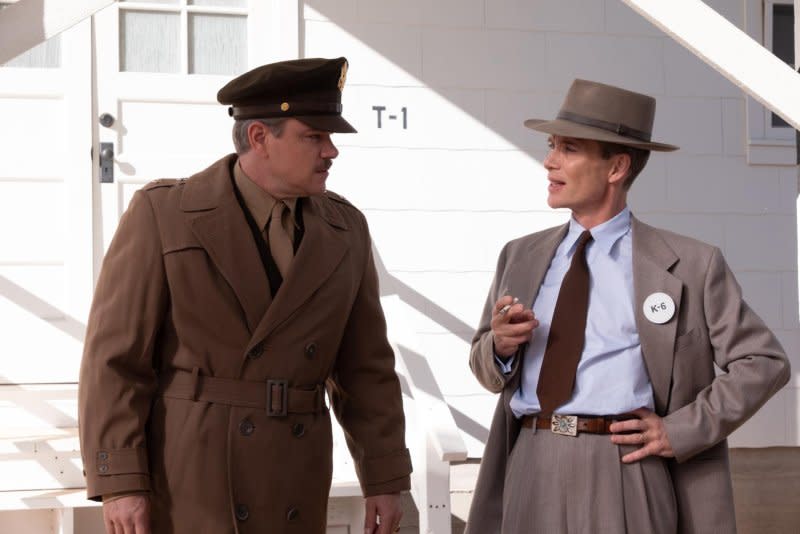
LOS ANGELES, July 19 (UPI) -- Oppenheimer, in theaters Friday, shows writer-director Christopher Nolan in firm command of his filmmaking tools. While the attempt to humanize the creator of the atomic bomb is valiant, technical prowess alone proves insufficient.
In 1949 and 1954, J. Robert Oppenheimer (Cillian Murphy) is the subject of government hearings, questioning his true allegiance given some communist ties. Oppenheimer flashes back and forth between the man's scientific development and those hearings.
As a student, Oppenheimer struggled with lab work. At Berkeley, Oppenheimer's interest in politics, from attending communist meetings to organizing a laboratory workers' union, hindered his career advancement.
The film presents Oppenheimer as a Jew witnessing World War II and searching for hope wherever he could find it. He wasn't sure the American military was the sole avenue, so he explored other options.
Oppenheimer's research and innovative organization proposals lead Gen. Groves (Matt Damon) to hire Oppenheimer as director of the Manhattan Project. The government builds the town of Los Alamos to Oppenheimer's specifications.
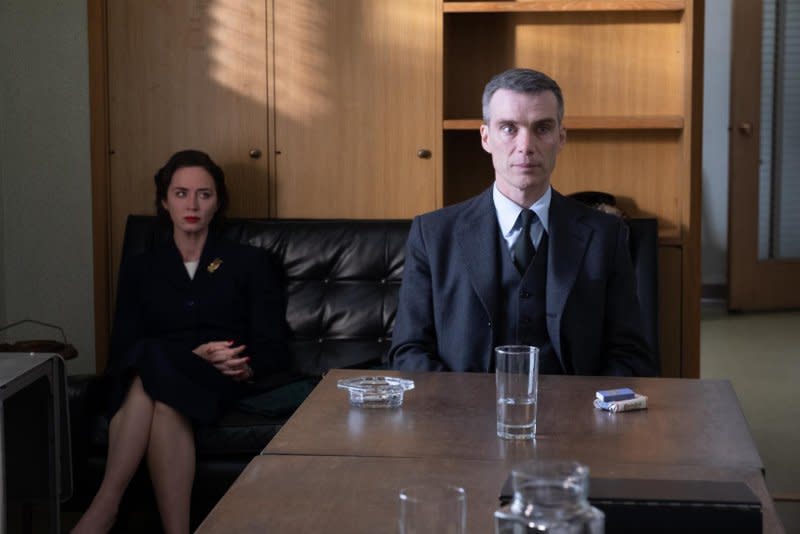
The structure of the parallel stories of the Manhattan Project and the post-war hearings is clear. The flashback reveals the answers to questions asked at the hearing, and events surrounding the Manhattan Project inform the hearing proceedings.
Where the style is far less effective, it browbeats the audience into submission with little substance behind it. Ludwig G?ransson wrote a good score, but the constant use of it is exhausting.
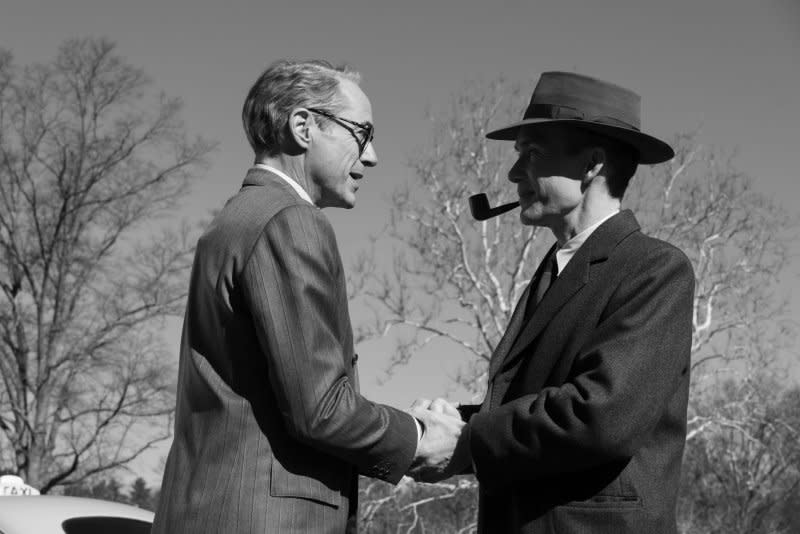
Editing between time periods with a constant score suggests the aesthetic of Terrence Malick. However, Malick, for better or worse, leaves his films ambiguous.
Oppenheimer is just barreling through historical events with an oppressive score. Nolan doesn't need to play music while Oppenheimer is just engaging in dialogue in a classroom. Just let some scenes breathe.
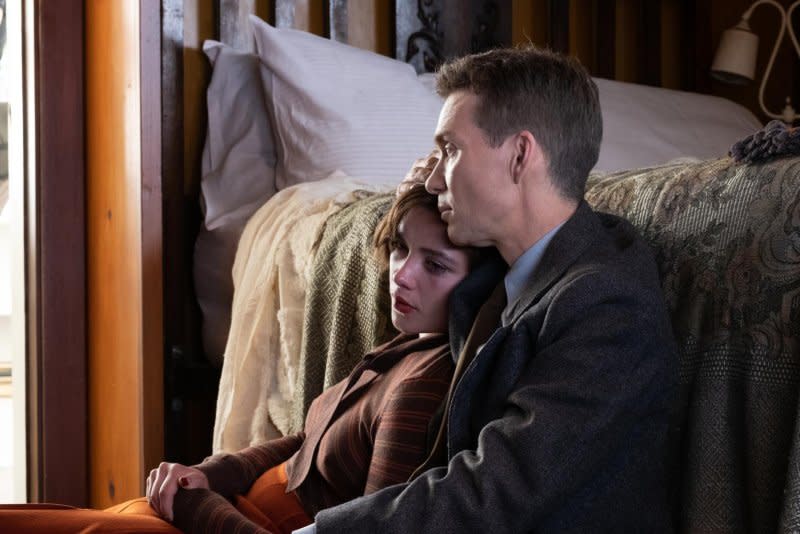
Nolan may have taken criticisms about his films' inaudible dialogue to heart and strove to keep dialogue at least as audible as the music. There are still a few unintelligible lines, such as when Oppenheimer's wife, Kitty (Emily Blunt), drowns out her own dialogue fumbling with her purse.
Wind drowns out the men in other scenes.
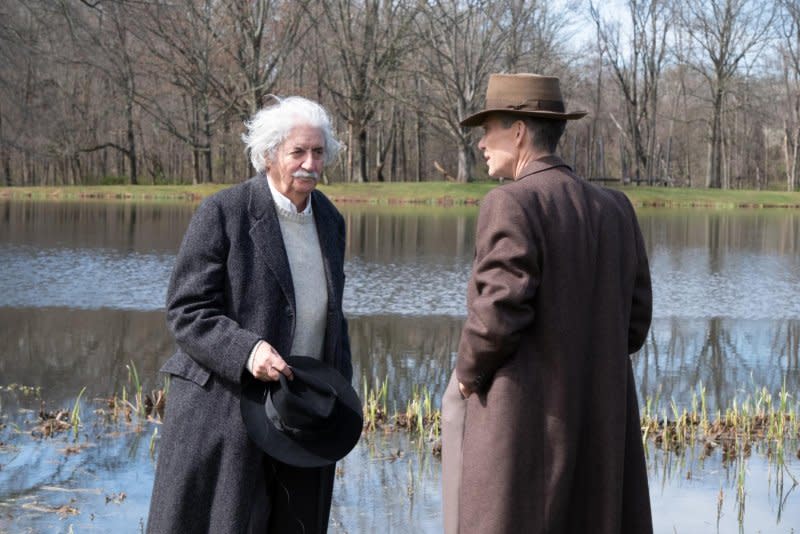
Some surreal moments convey Oppenheimer's feelings of guilt, both in matters of his infidelity and facilitating weapons of mass destruction. The manifestation of his infidelity borders on laughable, even though it was intended to be provocative.
There is a race against time to complete a bomb before the Germans do. That is effective, even though history tells viewers the United States won that race. The political discussions of which cities to target, and the philosophical rationalizations for doing so, are also compelling.
Considering the subject of Oppenheimer involves quantum mechanics, the film does a reasonable job explaining scientific concepts for laymen.
The film wants to be bigger than history, science and philosophy, though, and that is its undoing. Oppenheimer is hurling out themes of Oppenheimer's guilt and the government's desire to paint him as a traitor now that he's served his use.
Viewers who know little about Oppenheimer may expect the hearing to pay off as more of a conspiracy than it does. Talk of spies at Los Alamos sounds scandalous, but as history still played out without compromising American intelligence, it feels like an extraneous subplot.
The stakes of the hearing ultimately prove to be very low, as these are the hearings that determined the revocation of Oppenheimer's security clearance. His most notable achievement still stands and the rest is a bureaucratic matter.
The way Oppenheimer unveils different perspectives on history harkens back to Oliver Stone's seminal JFK. Stone made a compelling case cinematically, even though he portrayed fictional conspiracy theories.
Oppenheimer has facts on its side, but there's no real conspiracy. The resolution of the hearing also devolves into lots of guys in suits talking really fast at each other, but their dialogue does not have the flair of Aaron Sorkin.
Despite attempts to include three significant female characters in a male-dominated story, all three women fair poorly enough to suggest it might have been less glaring to stick to the military story.
Kitty only gets to be a spurned wife and harried mother for the first half of the film. She becomes pivotal in the film's third hour, which only suggests there must have been more to her earlier in her marriage.
Jean Tatlock (Florence Pugh) is the woman with whom Oppenheimer has an affair, but the film gives Jean no internal life outside of the man with whom she's sleeping.
Lilli Hornig (Olivia Thirlby) gets to contribute a few ideas to the project, as she must have in real life, but the film fails to develop her character.
Edward Teller (Bennie Safdie) has more of an arc with only a little more screen time, because he proposed the hydrogen bomb and expressed misgivings about the Los Alamos project.
Oppenheimer is clearly the movie Nolan set out to make. His choices are so intense that its missteps slightly outweigh the breakthroughs, and a bit more discretion could have balanced the opposing elements.
Fred Topel, who attended film school at Ithaca College, is a UPI entertainment writer based in Los Angeles. He has been a professional film critic since 1999, a Rotten Tomatoes critic since 2001, and a member of the Television Critics Association since 2012 and the Critics Choice Association since 2023. Read more of his work in Entertainment.
